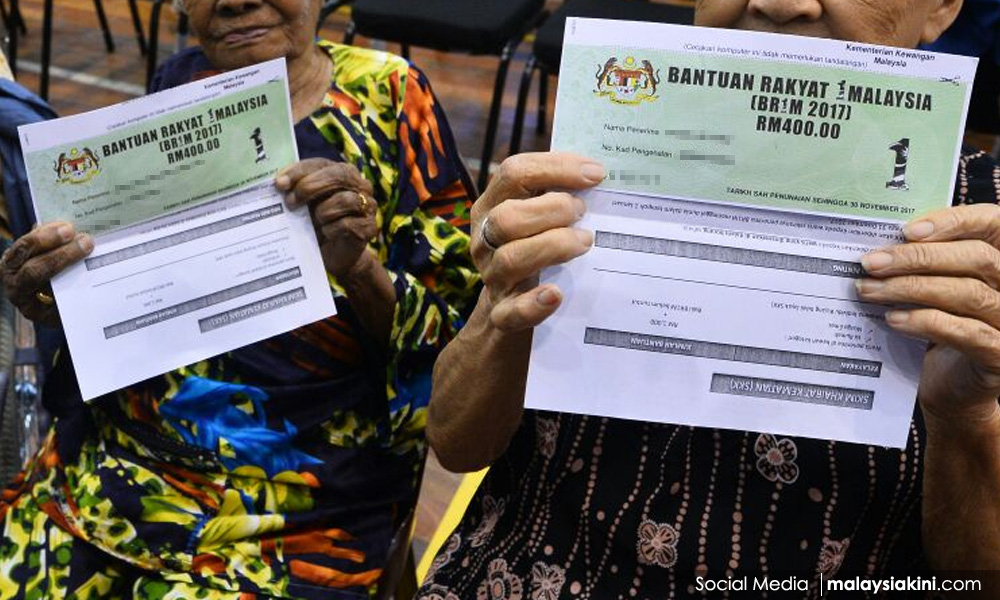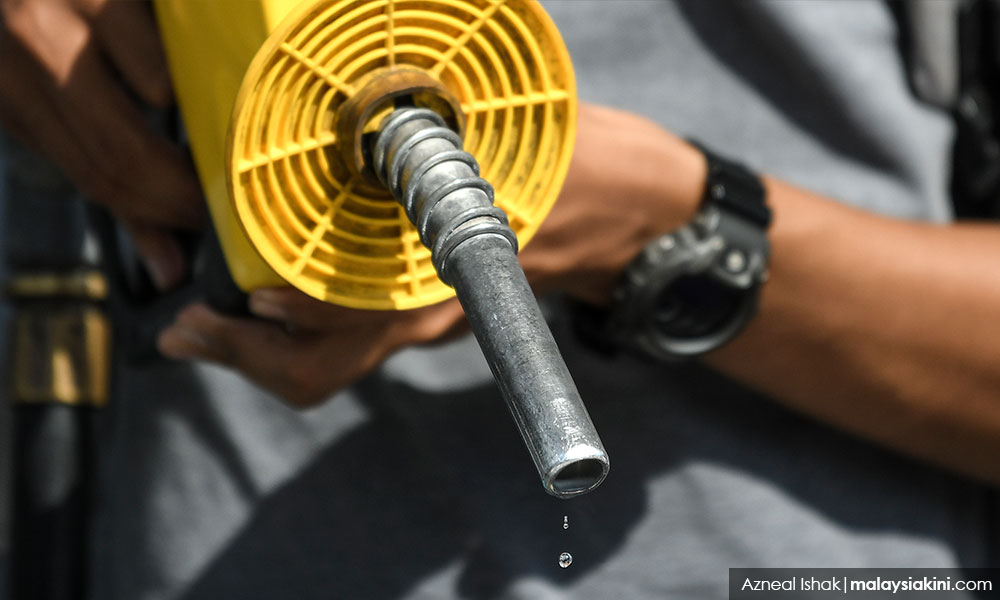Cash transfer costs less? Yes. Is it more efficient than “subsidy cards”? Absolutely. So, should we proceed with cash transfers?
I used to think so. Having graduated in my favourite subject (economics), I was a fervent proponent of cash transfers right up to my second term as an MP.
What changed my mind?
I discovered that people aren't quite always as rational as they are presumed to be in the basic textbooks; people are motivated by conflicting interests, with short-term gains weighing disproportionately more than longer-term ones; and people do not enjoy perfect information, while susceptible to political and emotional influences.
There are many examples to give. But let me cite the starkest example of them all.
Remember the wildly popular BR1M handouts introduced by disgraced former prime minister Najib Abdul Razak? (Who doesn't like free cash in the bank?)
It's so politically popular that despite several changes in government, every administration has maintained and expanded the programme (despite the obvious costs) via the perfunctory rebranding exercises.
But what you may not remember is that BR1M was incepted with the intention of doing away with the wildly leaky and heavily abused petrol subsidy.

It makes sense. The switch will cap the leaks, while the deserving groups continue to enjoy their subsidies via BR1M, in place of higher fuel prices.
But what happened?
The attempts to raise fuel prices failed. Which, in itself, isn't so bad. However, the BR1M could not be cancelled without severe political cost. So the government ended up with a double whammy - instead of reducing subsidies (by capping leaks), they ended up paying billions of ringgit more in cash transfers every year, on top of the subsidies they were already giving at the pump.
Why did it fail?
Simple, even a beneficiary of BR1M, when seeing rising weekly petrol prices, justified or otherwise, will get very upset.
The reason is simple human psychology. While the policy intention is to link BR1M to removing subsidies at the pump, the average man on the street is not going to see it the same way by connecting the two. We want our bread buttered on both sides, whether intentionally or subconsciously.
Therefore, in an environment where the ruling government cannot afford to risk upsetting voters due to the thin margin of election victories, any attempt to raise prices at the pump will be met with vicious protests, zealously and gleefully fanned by whoever sitting on the opposition bench.
So, if the government decides to proceed (again) with new cash transfers to targeted groups in return for raising prices at the pump, the risk is, that we'll be paying even more cash (on top of the rebranded BR1M successors) without successfully raising petrol prices.
This is the reason why I believe that “subsidy cards” or some alternative forms of target subsidies, while less “efficient”, are ideal. Motorists, like it or not, want to see that they are enjoying the lower fuel prices. Discounts at the pump.
Definitions get complicated
The challenge with targeted subsidies is with the “targets” - how they are defined. When definitions get complicated - like how much income or more critically, how much wealth which is sometimes difficult to measure - then the system gets overly cumbersome. The cost of implementation soars, and the risk of leakage increases.
It was the reason why we had decided in 2019 to set the criteria that (i) the ownership of the type of cars, and (ii) the number of cars, as the measure of whether someone qualifies for a petrol subsidy.
Unlike income or wealth, it is difficult to dispute. If you own a brand new BMW, you don’t qualify for subsidies regardless of your income statement. Or if you own five cars, why should you be subsidised?
The type and model of cars are finite and can be easily classified, with their vehicle age determined. The number of cars a person owns is in the Road Transport Department system. The above data are readily available, subject to some data scrubbing to ensure integrity.
The government can decide how generous they want to be with their subsidies at any time - draw the line at two cars. or three cars? include or exclude motorcycles? Does an 1800cc car get subsidised? How much of the subsidised fuel quota to give per person per month?

Regardless of where the line gets drawn, the subsidy cost becomes finite, and leakages through theft are eliminated. In essence, the parameters for this system are “defined”.
Is it a perfect system? No.
You are never going to get one. Are there going to be leakages like the rare millionaire who only owns and drives a Proton Saga getting subsidies? Perhaps. But the leakages will be a tiny fraction of the total subsidy bill, compared to the massive resulting savings.
While the system has costs to maintain which is more expensive than “cash transfers”, it is also minimised because administration is kept simple. Most importantly, the targeted motorists see lower costs at the pump for them.
Unfortunately, the system which was awarded and under development during my time in government was terminated post-Sheraton Move, before it could see the light of day.
I would certainly encourage the current government to look at it again and consider its merits. Overly complicated systems attempting to be extremely precise have a high risk of implementation failure because there are too many (uncontrolled) variables at play.
On the other hand, the simple and most cost-efficient “cash transfer” system will likely fail politically.
Whoever designs the system needs to find the balance between simplicity and accuracy. If successful, they might finally lead Malaysia out of its nearly enormous petrol subsidy bill which is costing the taxpayers tens of billions of ringgit a year. - Mkini
TONY PUA is the former special officer to former finance minister Lim Guan Eng. He was also a former MP.
The views expressed here are those of the author/contributor and do not necessarily represent the views of MMKtT.



No comments:
Post a Comment
Note: Only a member of this blog may post a comment.